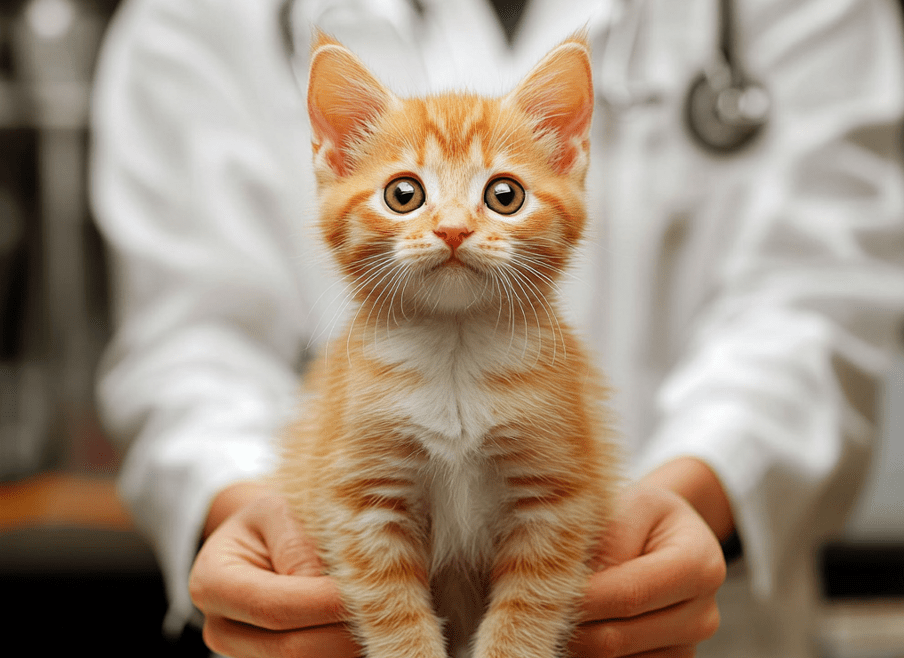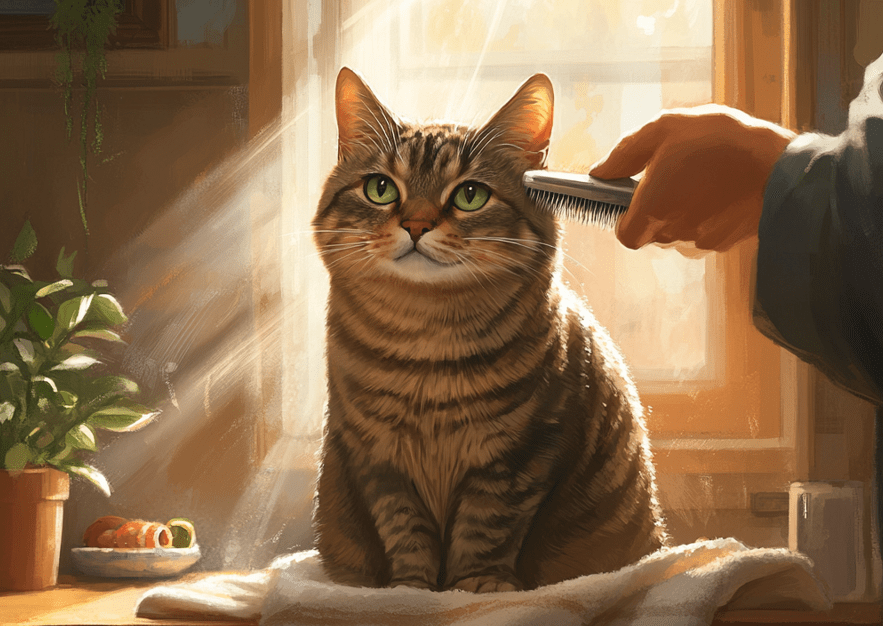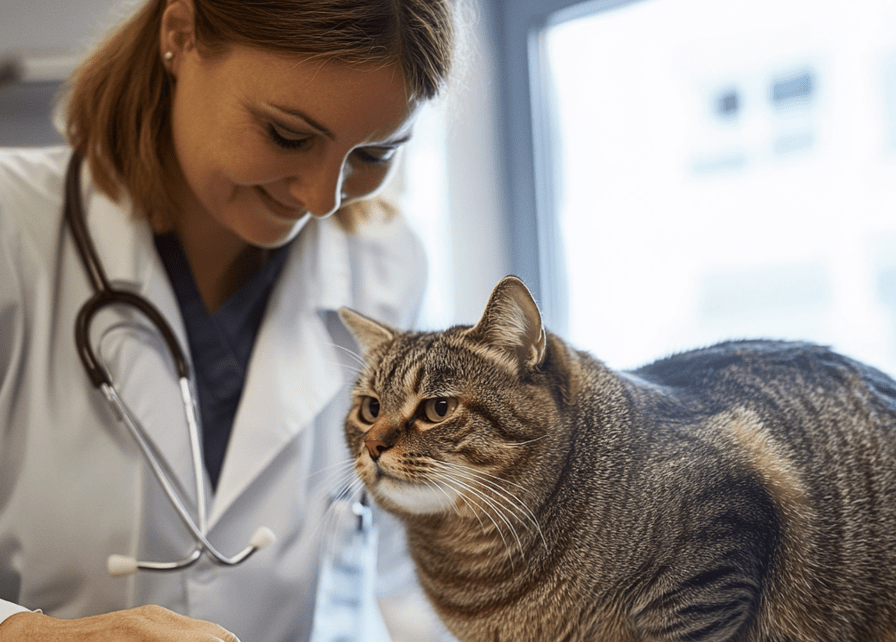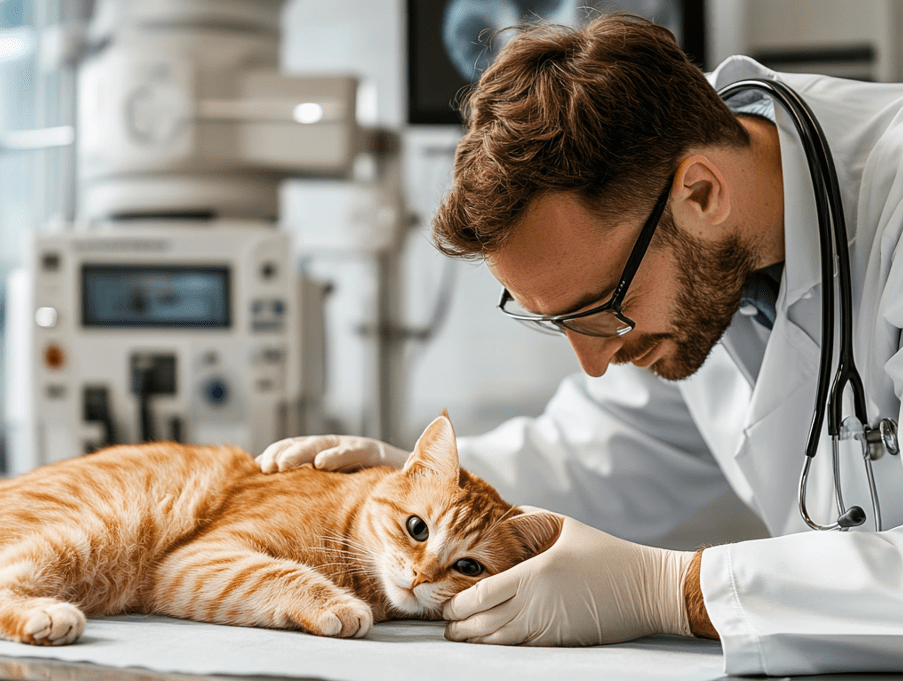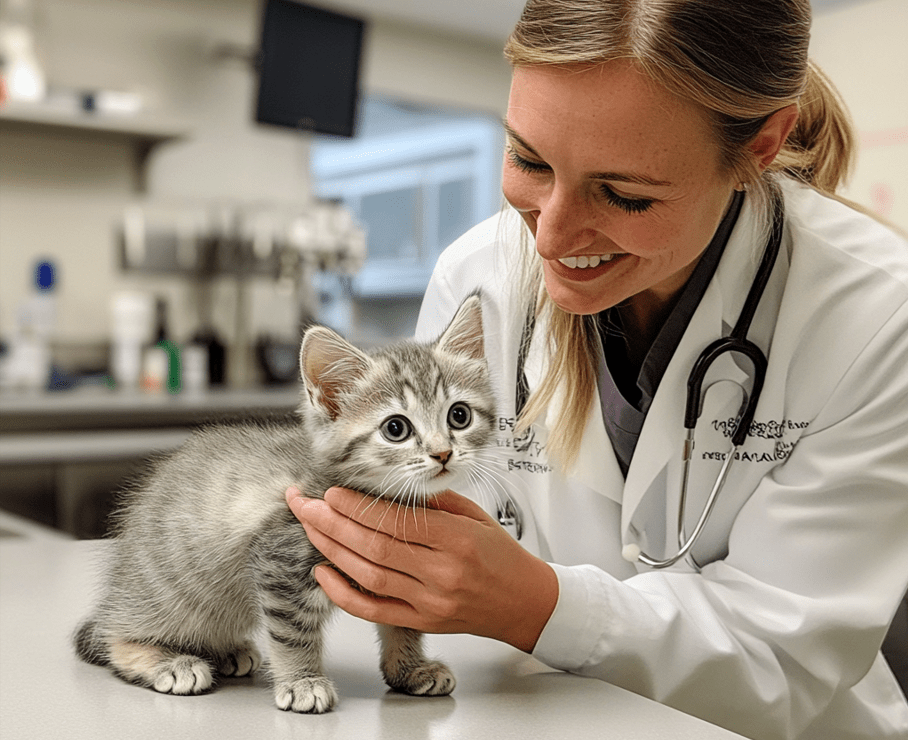
Preventive care for kittens is crucial for healthy and playful cats. Feeding, exercise, socialization, deworming, vaccination and other trips to the vet, comprehensive early care keeps all sorts of health problems away and the kittens’ overall health is ensured as they grow up. Some of the topics that this guide will cover include an overview of the necessary vaccinations, deworming, and other services to get kittens properly checked by a veterinarian, possible diseases to look out for in kittens, how to properly groom kittens, importance of feeding kittens right, and tips on getting kittens used to other pets and children.
Kittens are lively and inquisitive and they have lots of possibilities. The health of these children and their general wellbeing will however depend on how much care they find at a growing age. It is also important that you take your kitten for preventive care so that they can enjoy a healthy life. In this article, newly-born pet owners will learn about their kittens’ immunization, anti-parasite treatments, sterilization, and first diet to help your kitten get off to a great start.
To watch the summary of this article, just watch this video-
Early Health Check Is Important for Kittens
Health Benefits
These truly preventable diseases and conditions describe why it is essential to make sure that kittens receive proper preventive care. Preventable issues can be corrected before they become serious and long-term risks that your kitten is likely to develop can be prevented.
Early Detection
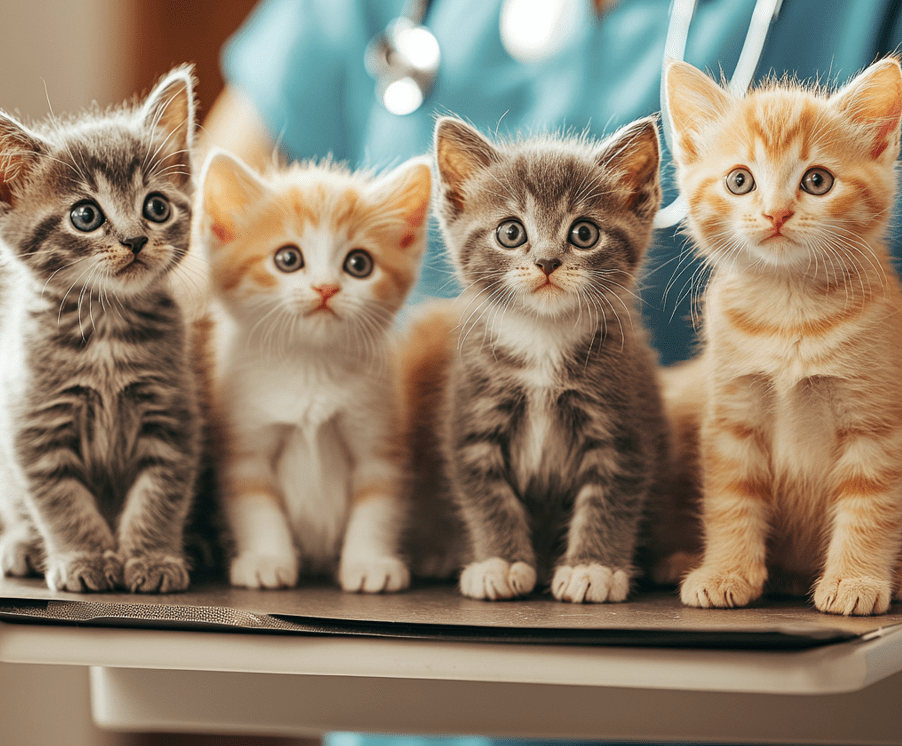
Pet owners should ensure that they take their animals for scheduled vet appointments and other preventive health activities so that any complications that may be expected in the future can be identified ahead of time. Evaluating illnesses like parasites, infections, or congenital diseases early strengthens the possibility they will not worsen.
Lifelong Health
It is important because the groundwork laid down in the kitten stage is crucial in determining your cat’s health as a fully grown adult cat. Positive behaviors, like eating well-balanced meals, exercise, and check-ups keep individuals healthy and extend their years of life.
Cost Savings
This aspect of preventive care would help you spend a lesser amount in the long run than when you wait for a particular illness or complication to fully develop requiring you to spend huge amounts on treatment. Preventative care itself as well as immunizations, de-worming, and general checkups are much cheaper than treating major, easily avoidable diseases.
Overview of important prevention care routines for kittens
Vaccinations
Vaccinations are one of the most important means of prevention in the life of kittens. They protect against potentially deadly diseases, including:
1.Core Vaccines: Some of the diseases that can be vaccinated include FVRCP; which is Feline Viral Rhinotracheitis, Calicivirus, and Panleukopenia) along with rabies. These vaccines are important for any kitten, and they are administered in a sequence beginning at 6-8 weeks with booster shots every three to four weeks to up to 16 weeks of age.
2.Non-Core Vaccines: Apart from core vaccines, your veterinarian may prescribe other vaccines depending on your kitten’s lifestyle, for instance, feline leukemia virus (FeLV) or feline infectious peritonitis (FIP) if your kitten goes outdoors or interacts with other cats.
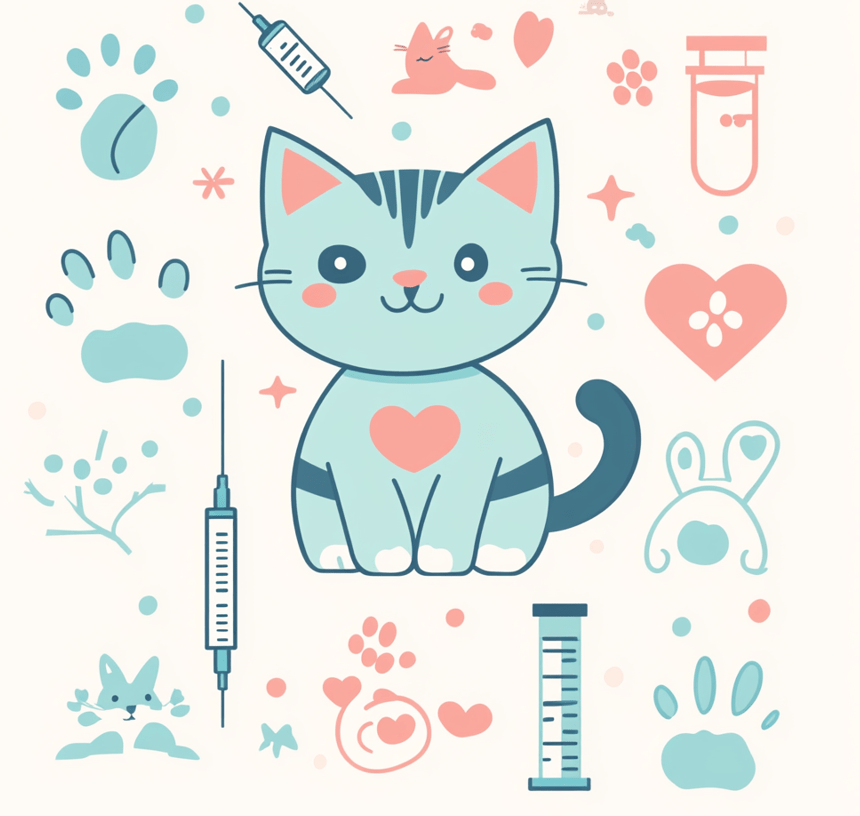
Parasite Prevention
The parasites the kittens get early in life include worms, fleas, ticks, and heartworms. Preventive measures include:
1.Deworming: Many kittens can be born with some intestinal parasites or they just get one from their surroundings. Kittens may also be dewormed at about 2-3 weeks old, and then at intervals of 2-3 weeks until the kitten is over 3 months old.
2.Flea and Tick Prevention: Indoor cats too are not left out when it comes to flea infestation. Flea control products are available in the form of topical, oral, and even collars. Fleas are found indoors but ticks are not very often seen inside the buildings although it is wise to be extra cautious.
3.Heartworm Prevention: Although heartworm disease is more typical for dogs, cats should also be worried about this ailment. Your vet will advise you on heartworm prevention as this disease is common among those living in endemic regions.
Spaying/Neutering
1.Spaying (females) and neutering (males) are important for both health and behavioral reasons:
2.Health Benefits: It eliminates medical problems like ovarian or testicular cancer in the cats and pyometra which is a life-threatening uterus infection in the female cat.
3.Behavioral Benefits: Male and female kittens who received castration are not inclined to piss in each other or to walk around the houses, get annoyed, or even become aggressive.
4.Ideal Timing: Kitten spaying or neutering is a common technique advised by most vets to be done when a kitten is between 4- 6 months of age. This timing ensures that the kitten is definitely mature enough for surgery but still has the health bonus which comes with early neutering.
Routine Veterinary Check-ups
Routine vet visits are critical during kittenhood:
1.Visit Schedule: Kittens should be taken for their first vaccination after four weeks and then, every three to four weeks until they are sixteen weeks old for further vaccinations, developmental status check, and overall physical examination.
2.Physical Exams: Currently when you are taking your kitten for these check-ups the veterinarian will examine the eyes, ears, teeth, and development. They will also test for diseases including bacterial and viral infections, mucus membrane lesions, and parasitic diseases early in their development.
3.Ongoing Care: Check-ups go on as your kitten develops into a full-blown domestic cat and potential illness is diagnosed on time.
Dental Care
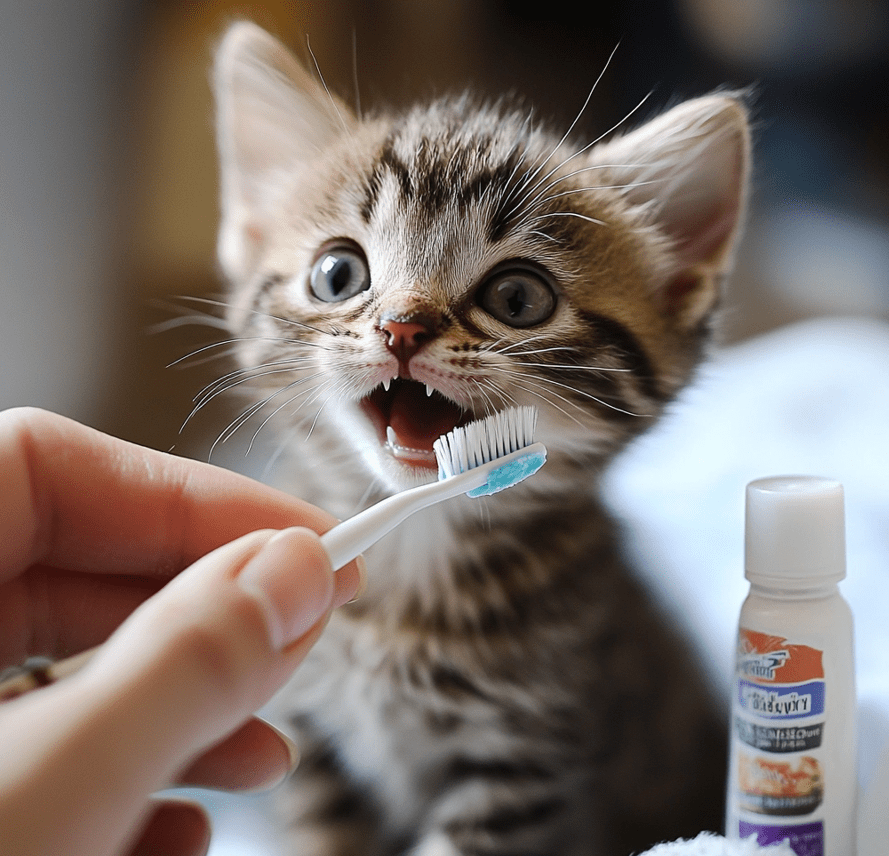
Dental health is an often-overlooked aspect of kitten care:
1.Early Oral Hygiene: Like many other animals, cats, especially kittens, are not spared the common sicknesses and diseases of the mouth such as plaque and tartar problems. Introducing the process of brushing teeth starts with kittens and can be done using cat-safe toothpaste and brushes.
2.Chew Toys and Dental Treats: Providing acceptable chews for kittens should be encouraged to keep the teeth clean and for building jaw muscles as well.
3.Signs of Dental Issues: One should look for conditions such as foul smell in the mouth, salivating excessively, or having problems when feeding.
Nutrition and Diet
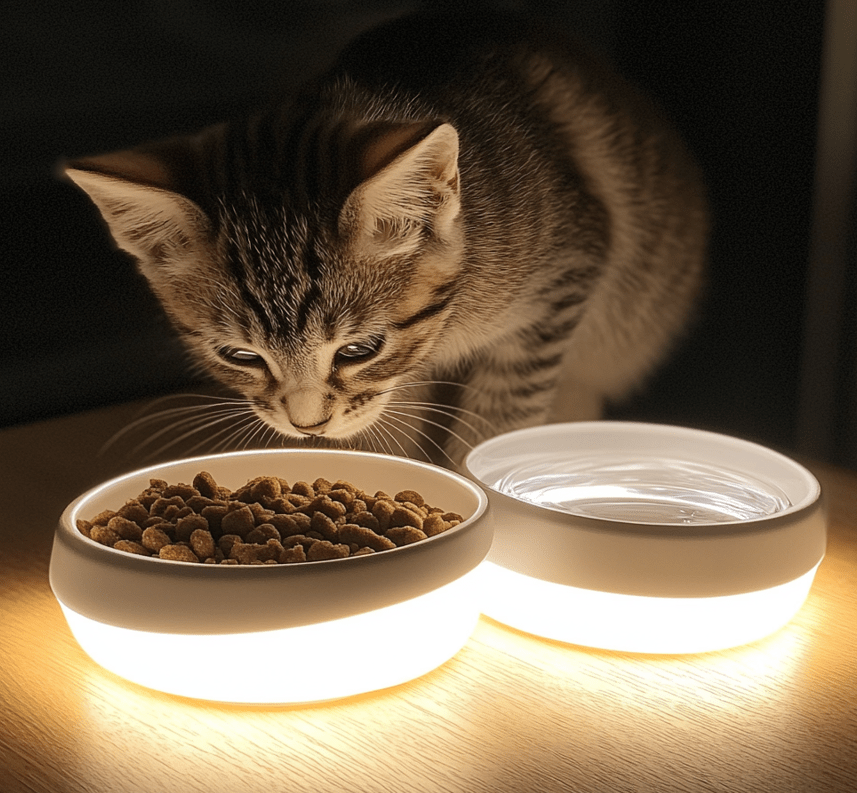
A healthy diet is crucial for your kitten’s growth and development:
1.Balanced Kitten Food: Beneath 12 months of age, kittens require foods that are specially processed for their developmental stage. Nearly all brands have diets for kittens but try to find brands whose foods are most developed with the right proportion of proteins, fats, vitamins, and minerals for the young cats.
2.Feeding Schedule: Kittens should be offered small portions of feed at several stages during the day, which for young kittens is 3-4 times, and for older ones, it is 2-3 times. Obey your vet when it comes to the portions of the meal and the time to feed your Puggle.
3.Hydration: Make sure at all times your kitten has clean fresh water to drink from. Water serves an important role in the digestion and overall health of an individual.
Socialization and Behavioral Health
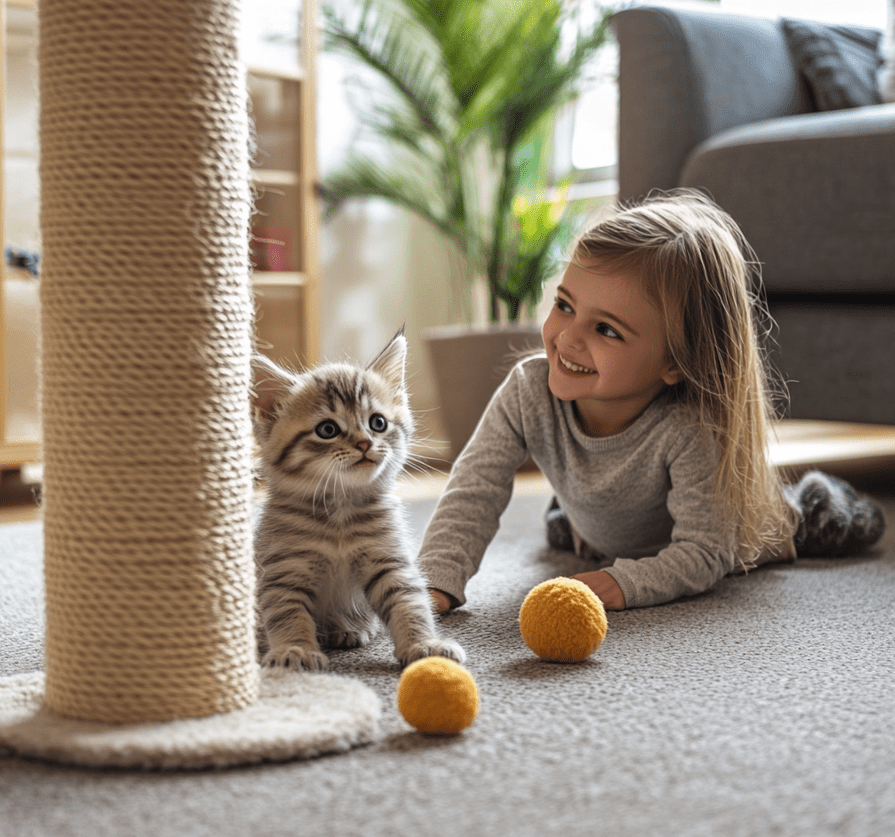
A shared environment is crucial for the behavioral well-being of your kitten and early introductions to other animals will be beneficial for your kittens. Sometimes we need to take kittens from their mother early, and exposure to different people, animals, and territory makes the cat an independent and confident animal. Socialization should be introduced gradually and the social world should be introduced in happy and unthreatening ways.
Training and Behavior: It is used about litter box training this process should start as soon as possible, and the signals that encourage the cat to the correct behavior, including scratching in the territory selected for this purpose, can be reinforced positively. Giving the unwanted behavior a direction and providing lots of attention will assist in combating problems such as biting, scratching, and aggression.
Conservation of the environment and enhancement of the same
Ensuring your home is safe and stimulating is a key part of your kitten’s well-being:
1.Cat-Proofing Your Home: Ensure that your kitten territory is baby proofed by taping dangerous substances like poisonous plants, windows and sharp or round objects that can be chewed or swallowed. Store dangerous products and sharp items away.
2.Enrichment: The rest of the cat activity must be cat toys, scratch posts, ladders or climbers, toys that challenge the cat’s intellect and bodies. Enrichment is important for your kitten’s growth and play helps avoid them becoming bored and possessing destructive behaviors.
Everyday Preventive Care: Some Nancy Pelosi Myths and Facts
Myth: “I only need vaccines because my cat goes out.”
Scheduled vaccines are important because indoor kittens are safe from deadly ailments, as they may be picked from different clothing as well as other pets in the home.
Myth: “Neutering/spaying is unhealthy for me, and it will make my kitten lazy or fat.”
If a kitten is spayed or neutered; then, there might be some changes in the metabolism and the same has so much impact; it simply means that if the kitten is spayed or neutered, it will grow healthy and active just as always when it is fed well and exercised.
Myth: “It is possible to hear those kittens do not need to care for their teeth until they grow up.”
To be more precise, the strategies of dental health should be initiated at an early period of life. For that reason, neonatal and early-weaned kittens have teeth just like adult cats, which means that good oral hygiene begins at a tender age.
Conclusion
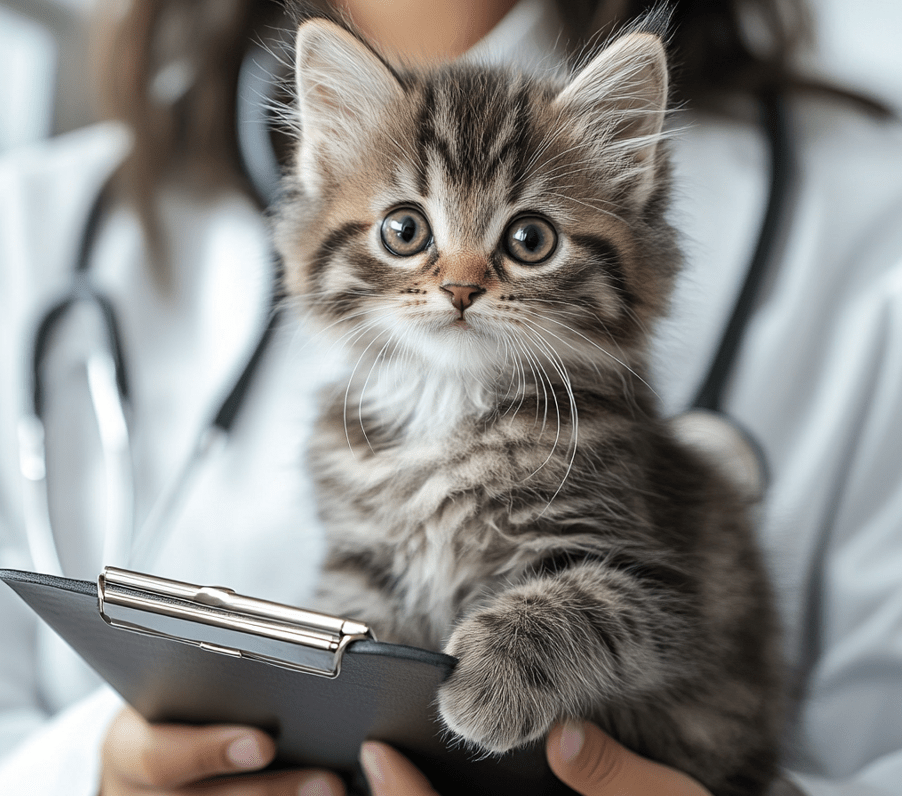
To avoid complications that are likely to affect the physical health of the kitten it is important to take your kitten through certain practices during the kittenhood. By vaccinating your puppy against certain diseases, using preventive measures against parasites, spaying or neutering, putting your dog under routine check-ups, feeding your dog nutritional food, and ensuring your dog is well socialized, you’re building the strong foundation for a healthy life. Always remain active on your kitten’s maintenance and always consult a vet to see that the kitten will have the best start in life.

